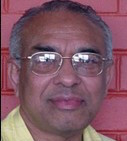Technocratic Cabinet With An Iron Fist

 The anti-Muslim violence in Ampara, breaking out soon after a cabinet mini-reshuffle in which the Prime Minister has taken over the law and order portfolio, is going to test not only his personal resolve to act decisively against unruly elements in society, but also the coalition’s governing ability after its debacle at the local polls. It appears that there is a hidden hand operating outside the law to hasten the dissolution of the parliament by creating maximum chaos. Islamophobia is once again threatening to show its ugly head as demonstrated in Ampara. Those who celebrated the victory at the local elections want to convert it into a national grand finale before the voters’ protest mood against the coalition evaporates. They obviously want to make hay while the sun shines. Here lies the danger to Sri Lanka’s democracy and society. If saner minds in the society sit quiet and allow this sinister plan to succeed, there is no doubt the country will descend fast to kakistocracy. The silence of the government and of the opposition over the Amapara mayhem speaks volumes about what is going during the rest of this government’s term of office.
The anti-Muslim violence in Ampara, breaking out soon after a cabinet mini-reshuffle in which the Prime Minister has taken over the law and order portfolio, is going to test not only his personal resolve to act decisively against unruly elements in society, but also the coalition’s governing ability after its debacle at the local polls. It appears that there is a hidden hand operating outside the law to hasten the dissolution of the parliament by creating maximum chaos. Islamophobia is once again threatening to show its ugly head as demonstrated in Ampara. Those who celebrated the victory at the local elections want to convert it into a national grand finale before the voters’ protest mood against the coalition evaporates. They obviously want to make hay while the sun shines. Here lies the danger to Sri Lanka’s democracy and society. If saner minds in the society sit quiet and allow this sinister plan to succeed, there is no doubt the country will descend fast to kakistocracy. The silence of the government and of the opposition over the Amapara mayhem speaks volumes about what is going during the rest of this government’s term of office.
What has democracy especially after the 1970s produced so far? Elections came and went nationally, provincially and locally; political parties emerged and they colluded and collided at their convenience, not in the interest of the nation but in the interest of power and profit; and, the membership of the legislature and executive increased to unaffordable and unmanageable levels just to reward electoral warlords. At the end of all these experiments, the country is fast sinking in debt, steeped in corruption and fallen hostage to the manipulation of transnational capital and regional power centres, while becoming a paradise for shady venturers and sordid power brokers. The ultimate victims of this derelict democracy are its ordinary citizens, majority of whom are facing a bleak economic future amidst inordinately rising cost of living and personal debt, political disruptions and social dislocations. Do Sri Lankans still want to continue with this hollowed democracy?
The need of the hour therefore, is a third alternative that can command the respect of the majority by its dedication and sacrifice to govern with an iron fist and tackle the issues facing the country head on and without fear or favour. It should not be a one-person rule but a one-team rule, and that team be predominantly staffed with technocrats, who would keep the lobbyists and hate mongers at bay. If there is going to be one solid lesson that one could learn from the experience of countries like Singapore, South Korea, Japan and Taiwan it is their success with technocracy. These countries also had political parties and periodic elections, but whichever the party that came to power it did not sacrifice its technocratic character. True, they are not perfect examples for a free society, but the constraints placed on liberty and freedom by those authoritarian regimes have been tacitly tolerated by the citizens because they could clearly witness the material benefits of the freedom deficit. One should remember that they are also societies following Buddhism of some sort.
Thanks to the welfare state that Sri Lanka enjoyed until the 1970s, it has produced a highly educated and technocratic intelligentia who are capable of taking up the challenge. They remain unidentified and unrewarded because the nation’s silent majority are too lethargic to encourage them, gather this elite under one umbrella and act as the vanguard for a bloodless revolution. This, I stress, is one of the patriotic duties of the silent majority. By disengaging itself from active political involvement, the silent majority has allowed the mediocre run riot and rule over everyone.
The current leadership at the helm has proved itself incapable and incompetent to be trusted with a fresh mandate. Its record of broken promises, weak governance, judicial laxity and above all, tolerance of financial maleficence has betrayed the confidence that people placed on the regime. The alternative leadership that is challenging the current one also has a sordid past with even more diabolical political traits. There is no demonstrable evidence so far to convince the people that this alternative has a new and workable plan to carry the nation forward with a clean slate and in the interest of national development with respect for diversity and differences, social harmony and rule of law. There are too many risks in bringing them back to power. One should recognise at the same time that there is a small technocratic element present within both leadership camps but tainted with a poisoned political atmosphere.

